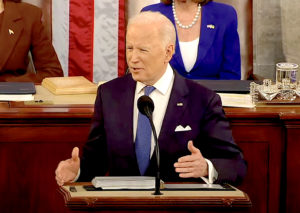During the COVID-19 crisis, the supply of iodinated contrast media suffered a setback. The pandemic cut off the regular supply chains as the manufacturing units stopped functioning temporarily. This condition of inadequacy resulted in an acute shortage of iodinated contrast media in the USA.
Recently, 30 Congress members presented this matter to the US president, Joe Biden, through a letter. They requested the president to use his authority to deal with the problem with urgency.
The Letter
The 30 Congress Members made it clear in their letter that obstructed supply of intravenous contrast fluids has already created healthcare issues for physicians and patients. The letter highlighted the possibility of further obstructions in the supply flow. With inadequate intravenous contrast fluids, detection of diseases like cancer gets delayed.
This, in turn, meant more threats of life losses and delayed cancer treatment for patients. Therefore, the letter urged the President of the USA to deploy his administrative authorities to create a prompt government response to work with the stakeholders to bridge the demand-supply gaps. The team of 30 Congress members shared this letter with the president on 13th June.
The Reason
While the scarcity of intravenous contrast fluids was the outcome, the turn of events that caused this supply shortage was lockdowns imposed in Shanghai during the COVID times. GE stopped the production of Iodixanol and Iohexol intravenous contrast media products for a while due to the pandemic-related restrictions.
This sudden drop in the product volume of the critical products hampered the US’s and global medical health care practices gravely. Due to this shortage, several clinics, hospitals, and other medical facility centers had to postpone or cancel critical diagnostic procedures and examinations.
Even though GE has resumed production, stabilizing the situation would require some more months given the existing gap between the demand and supply of these products.

The Suggestions
30 GOP members signed the letter to the US president. The letter further highlighted that COVID lockdowns in China impacted the medical care practices in the USA, revealing the necessity of a prompt outbound investment revision.
The letter further mentioned that a stable, systematic, and strategic procedure should be there to ensure zero passing of critical capabilities to the contenders of the USA. The letter emphasized the importance of a Government procedure to manage the entire system.
The Impact
Assuredly, medical care products determine the very quality of health care provided by a country. The USA also depends on several such equipment, medicines, and products to cater to the patients. Any lack in the supply of these essentials always leaves the entire country stranded in a vicious loop.
Therefore, the contrast shortage issue became one of the central topics of debate and discussion in various other government conversations before it appeared on the President’s desk lately. The AMA (American Medical Association) also urged Congress to pay attention to the supply shortages for various other drugs in the USA.
The congress conducted its annual meeting in the month of June before the letter made its way to the President. In that meeting, the providers decided to contrast language should become a part of the text going forward.
The Solution
Arl Van Moore is an MD and a part of the AMA House of Delegates. He is also the former ACR president. Moore discussed the policy decisions taken earlier and also tried to petition Congress and several other entities.
He described these industrious endeavors as a collective effort that encompasses multiple specialties. He further stated that besides the disappointments of their own specialty, they get to learn about the unique issues faced by other specialties.
He further revealed that regardless of the superficial differences, these issues always had a common thread of connection. He further clarified that an inclusive approach to these issues can solve the shortage problems for all the specialties.
Early detection of any disease always reduces the chance of fatalities. Especially for diseases like cancer, diagnosis remains the first step to cure. Early-stage malignance is mostly not life-threatening. However, a delayed diagnosis can put ant patient’s life at risk.
At SepStream®, we offer affordable and advanced imaging software solutions to make each diagnosis accurate and fast. You can explore our list of services to learn more about our AI-integrated software solutions.